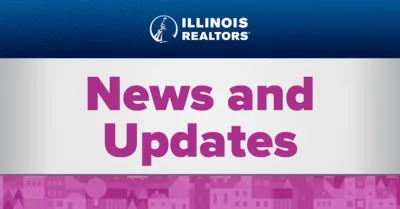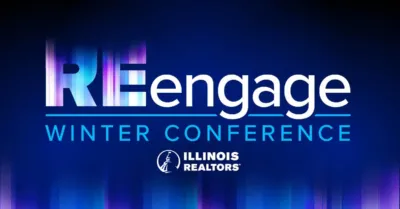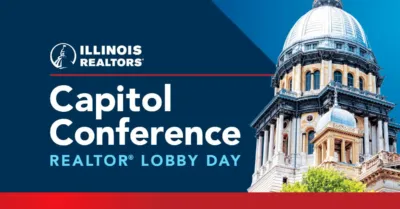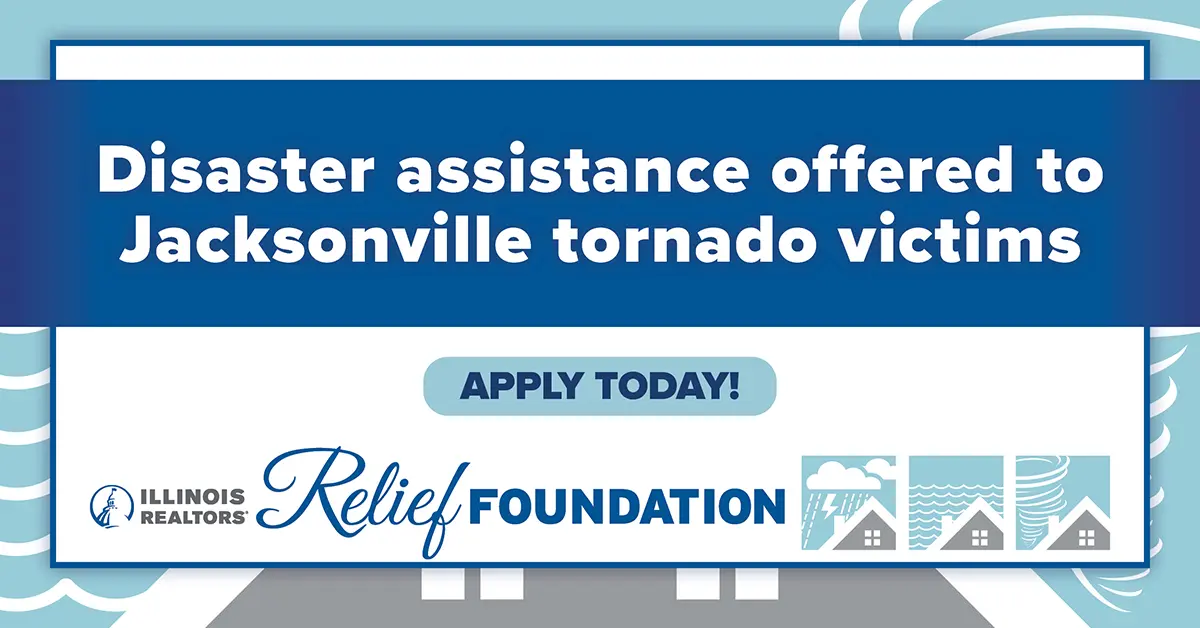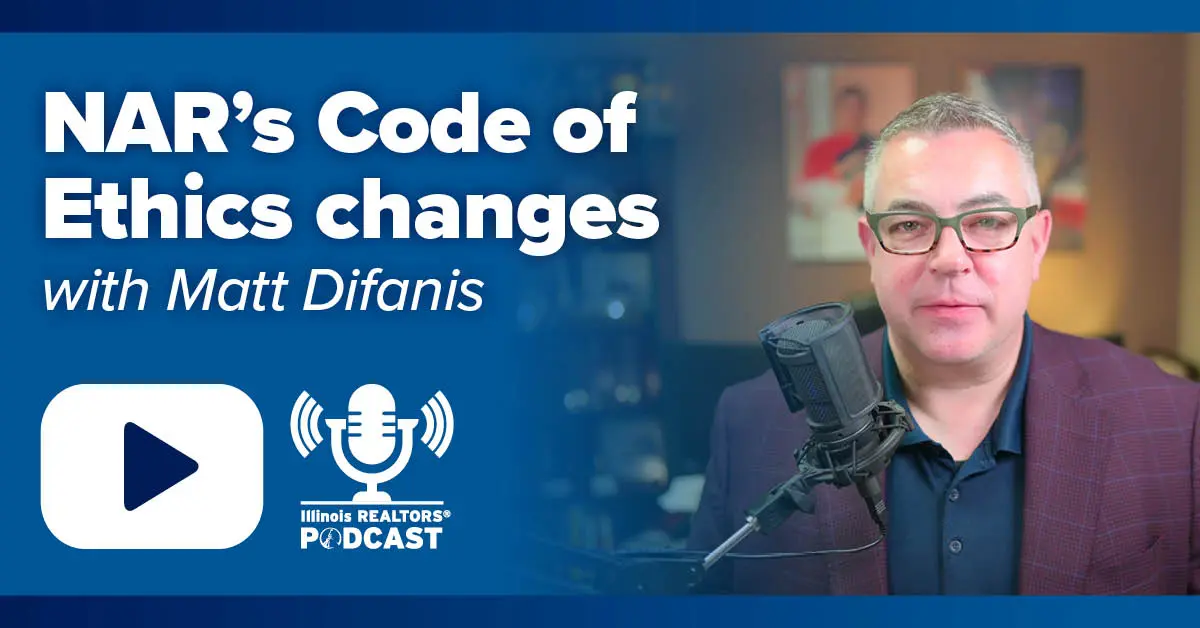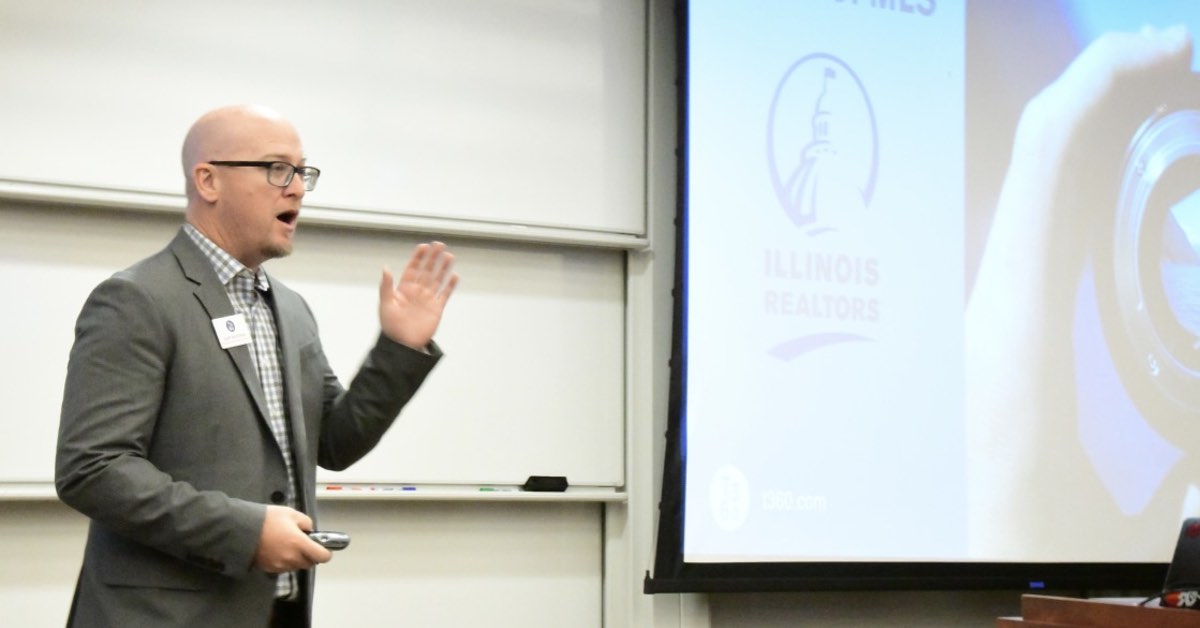
Clint Skutchan with T3 Sixty discussed the future of the Multiple Listing Service with Illinois REALTORS® on Tuesday, Aug. 13, 2019, in Chicago.
Illinois REALTORS® gathered Tuesday to hear about trends and issues affecting Multiple Listing Services throughout the U.S.
The event, which was held at the conclusion of the National Association of REALTORS® Leadership Summit, brought together association executives and incoming association volunteer leaders.
This is the second year the event has been held. It was created to help association members better understand a fast-changing and complex industry.
MLS of the future: Moving beyond cooperation and compensation
Clint Skutchan with T3 Sixty talked about the MLS of the Future which he says will be marked by a change from the traditional model of facilitating cooperation in marketing properties and setting up compensation models.
Among discussion points on dangers for MLSs:
- The governance model of associations and MLSs can be seen as holding back proactive development and reinvestment. Skutchan posed a question for attendees: Would anyone give a MLS money under current governance structures? He suggested that in some cases organizational constraints hold things back.
- Re-invest with intention. Said Skutchan: We hold on to things so long we don’t do anything.
Skutchan urged MLSs and associations to look at the Nintendo example. More than 100 years ago, the Japanese gaming company started as a manufacturer of colorful card games. Over the decades it has evolved to creating board games and now electronic gaming.
“It’s time to proactively and strategically examine your “why” and “how,” Skutchan said.
The why never changed for Nintendo, he said. The company’s mission was to provide hand-held games from its earliest days. The “how” changed from print to electronic.
Data standardization a benefit for industry, but not all on board, yet
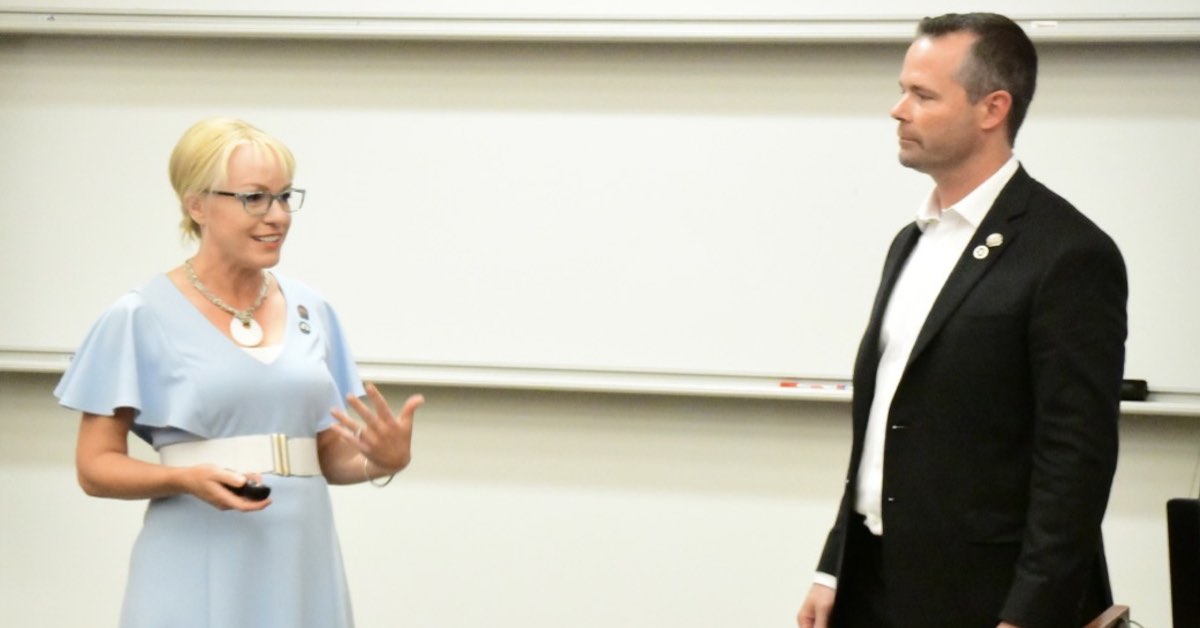 Sam DeBord, CEO of the Real Estate Standards Organization and Midwest Real Estate Data’s CEO Rebecca Jensen spoke on the need to better standardize and integrate different data sources into the MLS structure.
Sam DeBord, CEO of the Real Estate Standards Organization and Midwest Real Estate Data’s CEO Rebecca Jensen spoke on the need to better standardize and integrate different data sources into the MLS structure.
DeBord said RESO seeks standardization in a variety of areas, ranging from the terms and definitions used in MLS databases, to broker feed requirements and even how subscribers can contact someone at an MLS for assistance.
Jensen discussed the challenge of having ancillary service vendors become better integrated into MLS platforms. This would include transaction management, customer management databases and marketing programs.
Too many REALTORS® face an issue of having to log on to multiple systems. “Surveys show that having systems work together is a pain point,” Jensen said.
DeBord noted that cellphone and web developers have worked for years to set up open-source platforms which can support many services. Many providers for real estate services are more reluctant to adopt that model because they fear releasing information to their competition.
MLSs of the future will have better APIs to allow a more seamless user experience. This would keep data from being too siloed.
“The things we do in commons should be the same,” DeBord said.
NAR: No set goal for number of MLSs in nation
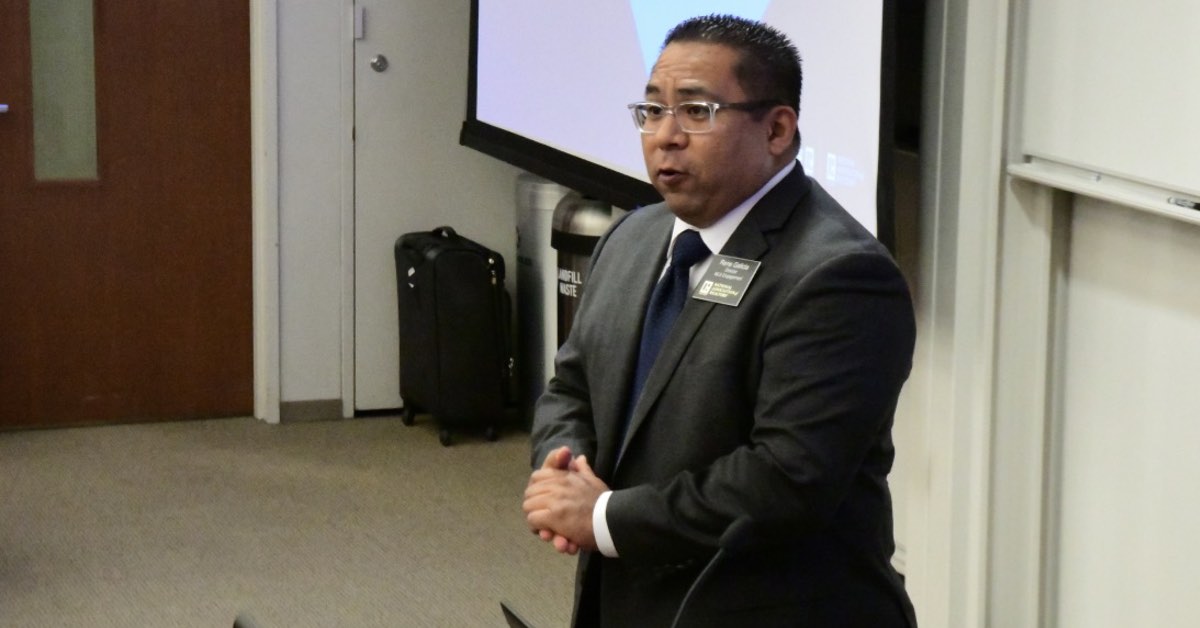
Rene Galicia, NAR director of MLS engagement, speaks at an MLS Forum held in Chicago on Tuesday, Aug. 13, 2019.
According to NAR’s accounting, there are 641 MLSs in the U.S. although that number fluctuates with pending MLS consolidations, said NAR Director of MLS Engagement Rene Galicia.
These MLSs serve 1,095 REALTOR® associations representing 1.3 million members. According to research, 8.9 percent of MLSs in the U.S. serve 72.5 percent of the membership.
Galicia said NAR does not have a number of MLSs that it thinks should be a goal for the industry. “The answer to that is up to you guys,” Galicia said. “It has to make sense for you and your membership.”
NAR doesn’t back consolidation for the sake of consolidation, Galicia said. Rather, the national association does support creating opportunities for collaboration.



